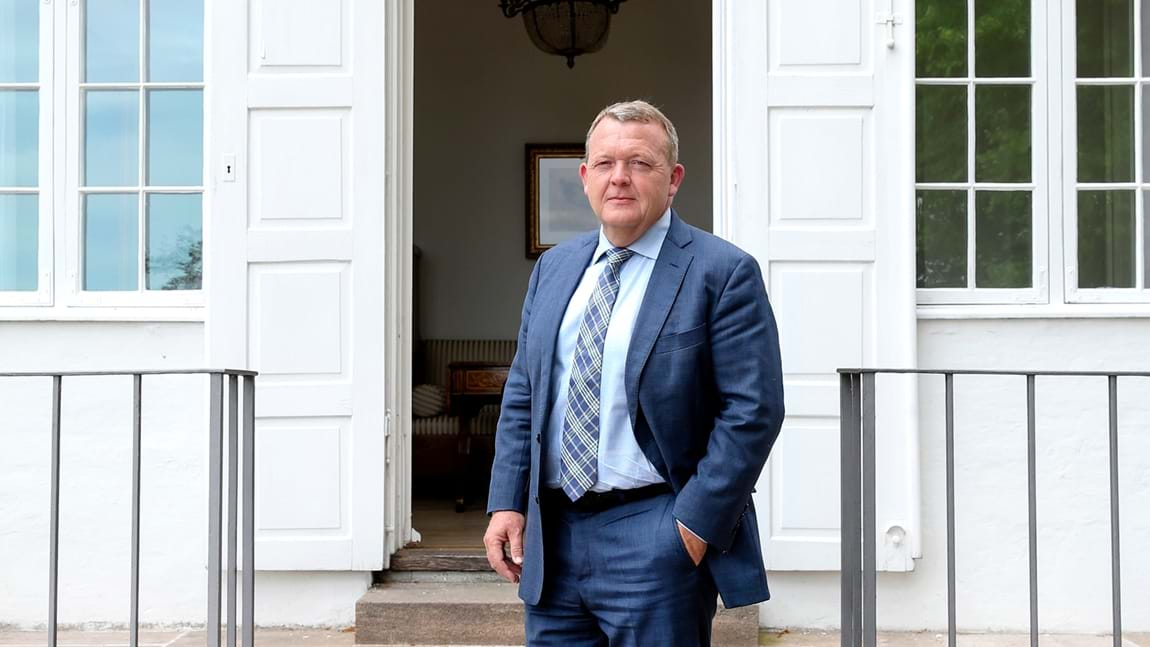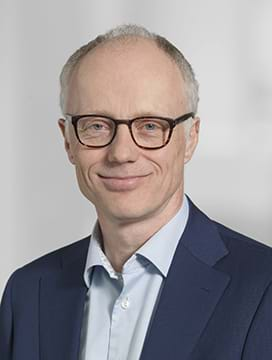Prime Minister Lars Løkke Rasmussen: Labour shortage jeopardises upswing
Prime Minister Lars Løkke Rasmussen wants to ensure that Denmark can hold its own in the competition for the world’s best talents. But this is only possible if companies go the extra mile and help get the weakest Danes into jobs.
Prime Minister Lars Løkke Rasmussen invites us into the sunlit rooms of Marienborg. Birds are chirping in the background, and on the other side of the windows is the 8.8-hectare park that surrounds the prime minister’s residence, manicured and green enough to make even the most green-fingered gardeners envious.
On a summer day like this, it’s hard to imagine a better place in the world than Denmark. But flora and fauna are one thing, business another. And unfortunately, the prime minister finds that Danish companies are increasingly saying goodbye to Denmark.
“I’m hearing reports of Danish businesses deciding to leave the country because they cannot get the necessary labour at home. It’s a logical decision for companies, but the consequence is of course that Denmark becomes less prosperous,” says the prime minister.
Lars Løkke Rasmussen describes his recent visit to Danfoss, who informed him that they had decided to locate their new IT centre in Flensburg, Germany, rather than Nordborg, where the industrial giant is headquartered. The reason was that Danfoss wouldn’t be able to recruit the necessary labour north of the border.
“The labour shortage is a problem that is under way, which our ten-year record in failed recruitments is also testimony to. We risk jeopardising the upswing. That is why we must exercise due diligence and act now,” says Lars Løkke Rasmussen.
See also: Key indicators: Danish companies lag behind in use of advanced technology
But I want to encourage companies to do their part to include those who have been left behind Prime Minister Lars Løkke Rasmussen
We must include those left behind
So what is the solution, according to the prime minister? That depends entirely on the time frame. In the short term, Lars Løkke Rasmussen believes that focus should be on the approximately 107,000 individuals in the labour force who are still unemployed.
“I am perfectly aware that they cannot all jump right in and be fully productive. But I want to encourage companies to do their part to include those who have been left behind. And naturally, the government will do what it can to support and build the competences that are lacking,” he says.
Another source of employees is other countries. “In recent years foreign labour has been essential for Danish companies, and this must continue,” the prime minister assures.
“But business leaders also need to understand that we cannot look at foreign labour in isolation from all sorts of other broader issues regarding values, norms and parallel societies. If there is to be legitimacy to inviting in foreign labour, it is also necessary to have demonstrated that you’ve done your part to bring unemployed Danes into the labour market,” says Lars Løkke Rasmussen.
Do you believe that the 107,000 unemployed Danes have priority over foreign labour – or can the two happen in tandem?
“It can certainly happen in tandem. And it already does. We’ve created 140,000 private sector jobs since the election, but the unemployment rate hasn’t decreased correspondingly. That’s because it’s a combination of Danes and foreigners who have joined the labour market. But if we’re to gain public support for an immigration policy that is twofold – where we are closed to those who can’t and won’t participate, and an open to foreign talent – the business community also has a responsibility to show that they are not simply taking the easy way out,” he says.
See also: Guide for hiring foreign employees
The Social Democrats have failed
According to the prime minister, it is precisely the view on foreign labour that divides the government and the opposition.
“I think it’s important to make the distinction that a foreigner isn’t simply a foreigner. There’s a difference between a Somali who comes to Europe because the grass is greener and a competent Indian IT worker or a Mexican engineer.”
Do you find that the opposition lumps the two groups together?
“Yes, de facto, they do, given that when Denmark was under pressure as a result of immigration in 2015, the Social Democrats fell for the temptation of supporting an increase of the pay limit scheme. And not only was the pay limit increased – they also made it more bureaucratic for companies to bring foreign talent to Denmark,” says Lars Løkke Rasmussen and adds:
“I would insist on a balanced approach. We can expect tougher international competition for the best talents, and Denmark needs to be part of that competition. But as things are now, with the pay limit scheme and the bureaucracy companies face when hiring a foreigner, we only make it harder for ourselves. This is something we need to change.”
Invest in the future
If the labour shortage issues are to be solved, it is necessary to educate new employees who can take over when the current workforce leaves the labour market. In the prime minister’s words, the good times today must be used to prepare for the good times of the future.
“Basically, we have the problem of having far too few skilled workers. This isn’t a problem we can solve from one day to the next. But it should remind business leaders that they need to be more open to starting training programmes and drawing young people in,” says Lars Løkke Rasmussen.
According to the prime minister, the problem is that uncertainty about whether apprenticeships are available leads even more young people down the path of higher education. He points out that in the tripartite agreement between social partners and the government, clear goals were set up for the number of apprenticeships. In September the government will present proposals for strengthening vocational educations.
“It’s crucial that the targets set are met. It’s an investment in the future. And now is the time to invest,” he says.
At the opposite end of the age spectrum, Lars Løkke Rasmussen also sees opportunities.
“We’re missing out on some grey gold. But I think companies have to show flexibility if they want to get their hands on it.”
Is it your impression that companies only want plug-and-play employees?
“It varies, of course. When I’m out visiting SMEs, I see flexibility. And I think that’s important. It’s not all seniors who want to be working full time. They want time to be grandparents, too,” says Lars Løkke Rasmussen.
See also: DKK 5 million grant to attract talents across the Atlantic
Difficult to stay pessimistic
At Marienborg, time is running out. In the doorway, the press secretary signals that it’s time to wrap up the conversation, but the prime minister has one final important point to make.
“Since the last election, 140,000 private sector jobs have been created. We’ve set a national record in employment, and we have the lowest number of people dependent on benefits in eleven years. That makes it difficult to stay pessimistic,” says the prime minister and adds:
“In the wake of these developments, we see enormous socio-political progress. It is inherent to every human to try to get up and stand on their own two feet. It’s not only about ensuring there’s food on the table. It’s about identity and community. About creating something together. And that’s what you get from having a job.”
FACTS
DI Business Summit 2018:
Prime Minister Lars Løkke Rasmussen is one of the keynote speakers at the DI Business Summit 2018, Tuesday 18 September.
The theme of the speech has already been revealed: How will the government help solve the labour shortage that companies are struggling with?
Lars Løkke Rasmussen is now entering his final political season before the next parliamentary election, which will be held latest 17 June 2019.


